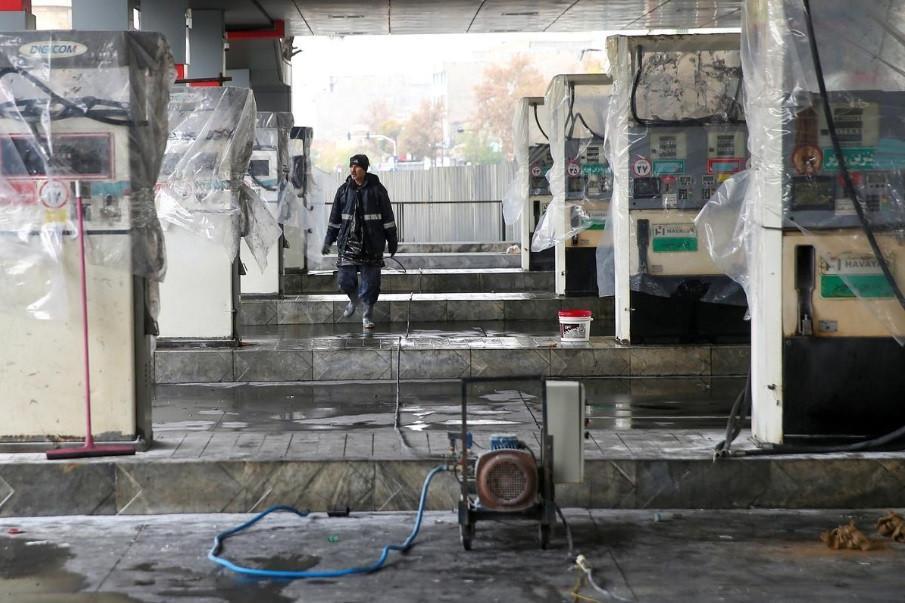Iran curbs internet before possible new protests: reports
DUBAI - Reuters

Iran’s authorities have restricted mobile internet access in several provinces, an Iranian news agency reported on Dec. 25, a day before new protests were expected to kick-off following calls for demonstrations on social media.
Social media posts, along with some relatives of people killed in unrest last month, have called for renewed protests and for ceremonies to commemorate the dead to be held on Dec. 26.
State media, meanwhile, said intelligence ministry agents had seized a cache of 126 mostly U.S.-made guns smuggled to the central city of Isfahan from abroad.
The protests were initially sparked in November by hikes in gasoline prices but demonstrators quickly expanded their demands to cover calls for more political freedom and other issues.
The government, which launched the bloodiest crackdown on demonstrators in the 40-year history of the Islamic Republic, blamed foreign enemies for stoking tensions.
An official denied any order by the authorities to block the internet, which was shutdown for about a week in the November unrest. A news agency also cited mobile operators saying their services had not been disrupted.
The semi-official news agency ILNA quoted an informed source at the Communications and Information Technology Ministry as saying mobile internet access to overseas sites was blocked by “security authorities” in Alborz, Kurdestan and Zanjan provinces in central and western Iran and Fars in the south.
“According to this source, it is possible that more provinces will be affected by the shutdown of mobile international connectivity,” ILNA said.
Internet blockage observatory NetBlocks said on Twitter: “Confirmed: Evidence of mobile internet disruption in parts of #Iran ...real-time network data show two distinct drops in connectivity this morning amid reports of regional outages; incident ongoing.”
“I just checked myself and asked a friend, and the internet is off on our mobiles,” a resident in Ahvaz, the capital of the oil producing Khuzestan province, told Reuters.
But a communications ministry spokesman denied there was an order to shut down the internet. “No such order has been issued by the judiciary or other relevant authorities. The Fake News are at work,” Jamal Hadian said in a Twitter post.
Iran’s three mobile operators also denied experiencing any internet disruptions, the YJC news agency reported.
In Alborz province, one of the areas affected by the shutdown, authorities this week arrested the parents of a young man who was shot dead during the protests, after pressuring them to call off a commemoration for their son scheduled for Dec. 26, citing concerns it could create unrest.
The weapons seized in Isfahan included assault rifles, handguns and pellet guns, the state news agency IRNA said. “Most of the weapons carry USA badges and are American-made,” it added.
The internet blockage made it difficult for protesters to post videos on social media to generate support and also to obtain reliable reports on the extent of the unrest.
Security forces have been on alert for any events that could spark more unrest after 1,500 people were killed in less than two weeks after protests erupted on Nov. 15, according to a Reuters report.
That figure is much higher than estimates by international human rights groups and was also dismissed as “fake news” by a spokesman for Iran’s top state security body.
The United States imposed sanctions on Iran’s communications minister last month for his role in “widescale internet censorship,” a reference to the nationwide shutdown.
Iran has blamed “thugs” linked to exiles and foreign foes - the United States, Israel and Saudi Arabia - for stirring up unrest through social media.
During the protests, hundreds of banks and public buildings were attacked and damaged.
















